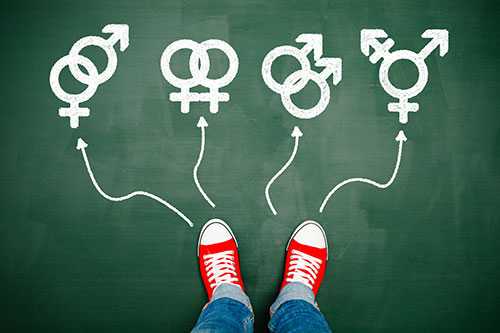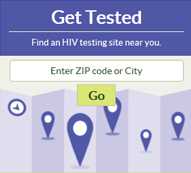LGBT Youth Resources
Positive environments are important to help all youth thrive. However, the health needs of LGBT Youth can differ from their heterosexual peers. On this page, find resources from the CDC, other government agencies, and community organizations for LGBT Youth, their friends, educators, parents, and family members to support positive environments.

Resources for LGBT Youth and Friends/Supporters
Some LGBT youth are more likely than their heterosexual peers to experience negative health and life outcomes. It is important that at-risk LGBT youth have access to resources and support to deal with the questions and challenges they may face as they mature.
-
Gay, Lesbian, and Bisexual Teens: Facts for Teens and Their Parents
If you’ve ever wondered if you’re gay, lesbian, or bisexual, you’re not alone. Many teens ask themselves this question. For parents and caregivers, finding out your son or daughter is gay, lesbian, or bisexual can be difficult. Learn more. -
Gay, Lesbian & Straight Education Network (GLSEN): Student Action
As a student, you have the power to make change in many ways in your school and community. -
Genders & Sexualities Alliance Network
A GSA club is a student-run club in a high school or middle school that brings together LGBTQI+ and straight students to support each other. -
It Gets Better Project
The It Gets Better Project reminds teenagers in the LGBT community that they are not alone and it will get better. -
Q Card Project
The Q Card is a simple and easy-to-use communication tool designed to empower LGBTQ youth to become actively engaged in their health, and to support the people who provide their care. -
StopBullying.gov: Information for LGBT Youth
Lesbian, gay, bisexual, or transgender (LGBT) youth and those perceived as LGBT are at an increased risk of being bullied. There are important and unique considerations for strategies to prevent and address bullying of LGBT youth. -
The Trevor Project: Crisis Intervention and Suicide Prevention
The Trevor Project is a national organization providing crisis intervention and suicide prevention services to lesbian, gay, bisexual, transgender and questioning (LGBTQ) young people ages 13-24.
Resources for Educators and School Administrators
Because some LGBT youth are more likely than their heterosexual peers to experience bullying or other aggression in school, it is important that educators, counselors, and school administrators have access to resources and support to create a safe, healthy learning environment for all students.
-
Advocates for Youth (AFY): LGBTQ Resources for Professionals
Lesson plans, tips and strategies, background information, and additional resources to help youth-serving professionals create safe space for young people of all sexual orientations and gender identities. - American Psychological Association (APA) Resources
-
Healthy Lesbian, Gay and Bisexual Students Project
The Safe and Supportive Schools Project promotes safe and supportive environments to prevent HIV and other sexually transmitted infections among adolescents. -
Just the Facts: A Primer for Principals, Educators, and School Personnel
Just the Facts provides information and resources for principals, educators and school personnel who confront sensitive issues involving gay, lesbian and bisexual students. -
Understanding Sexual Orientation and Gender Identity
Accurate information for those who want to better understand sexual orientation.
-
Healthy Lesbian, Gay and Bisexual Students Project
-
Bullied: A Student, a School and a Case That Made History: Teaching materials for educators
“Bullied” is designed to help administrators, teachers and counselors create a safer school environment for all students, not just those who are gay and lesbian. -
Gay, Lesbian & Straight Education Network (GLSEN): Educator Resources
GLSEN educator guides and lessons to support your curriculum and practices. -
Genders and Sexualities Alliance (GSA) Network: Transforming Schools
GSA clubs can make schools safer and more welcoming for LGBTQ youth. -
HIV/AIDS and Young Men Who Have Sex with Men [PDF – 526 KB]
Learn more about how HIV disproportionately affects young men who have sex with men. -
National Alliance to End Homelessness: Serving LGBT Homeless Youth
To end LGBT youth homelessness, youth and young adults need stable housing, supportive connections to caring adults, and access to mainstream services that will place them on a path to long-term success. -
National Education Association: Bullying Prevention Resources
Educators know that that every student deserves a safe, welcoming, affirming learning environment. In fact, research shows that learning is stunted when the need to feel safe and respected is not met. -
Questions and Answers: LGBTQ Youth Issues
Questions and answers on sexual orientation, gender identity, and risks or challenges some LGBTQ youth may experience. -
StopBullying.gov: Information for Educators and Other School Professionals
Schools are a place where bullying can happen. Helping to establish a supportive and safe school climate where all students are accepted and knowing how to respond when bullying happens are key to making sure all students are able to learn and grow. -
The Trevor Project: Education and Resources for Adults
The Trevor Project’s “Trainings for Professionals” include in-person Ally and CARE trainings designed for adults who work with youth. These trainings help counselors, educators, administrators, school nurses, and social workers discuss LGBTQ-competent suicide prevention.
Resources for Parents, Guardians, and Family Members
Some LGBT youth are more likely than their heterosexual peers to experience negative health and life outcomes, so it is critical for the parents, guardians, and other family members of LGBT youth to have access to the resources they need to ensure their LGBT children are protected and supported.
-
Advocates for Youth (AFY): LGBTQ Issues Info for Parents
LGBTQ youth need parents who respect, support, and listen to them. -
Electronic Aggression
Increased access to technology has benefits, but it also increases the risk of abuse. Learn more. -
The Family Acceptance Project
The Family Acceptance Project is a research, intervention, education, and policy initiative that works to prevent health and mental health risks for LGBT children and youth. -
Gay, Lesbian, and Bisexual Teens: Facts for Teens and Their Parents
Finding out your son or daughter is gay, lesbian, or bisexual can be difficult. “A message to parents” can help you learn more about how to engage with your child on this topic. -
Helping Families to Support Their LGBT Children [PDF – 1.39 MB]
This resource guide was developed help practitioners who work in a wide range of settings to understand the critical role of family acceptance and rejection in contributing to the health and well-being of adolescents who identify as LGBT. -
KidsHealth.org: Sexual Attraction and Orientation
Information for parents on how youth experience sexual attraction and orientation, as well as how you as a parent or guardian may feel about and deal with youth on this topic. -
Parents, Families, Friends, and Allies of Lesbians and Gays (PFLAG)
Information about PFLAG’s confidential peer support and education in communities. -
Parents’ Influence on the Health of Lesbian, Gay, and Bisexual Teens: What Parents and Families Should Know [PDF – 254 KB]
Information on how parents can promote positive health outcomes for their LGB teen. -
Sexual Orientation: Families Are Talking [PDF – 83 KB]
Information for parents and guardians to use in discussion sexual orientation with children and teens. -
StopBullying.gov: Information for Parents
Parents play a key role in preventing and responding to bullying. If you know or suspect that your child is involved in bullying, here are several resources that may help. -
Supportive Families, Healthy Children: Helping Families with Lesbian, Gay, Bisexual and Transgender Children [PDF – 1.33 MB]
A family model to increase family support, decrease risk and promote the well-being of LGBT children and youth. -
Understanding Sexual Orientation and Gender Identity
Accurate information for those who want to better understand sexual orientation.
Links to non-Federal organizations found at this site are provided solely as a service to our users. These links do not constitute an endorsement of these organizations or their programs by CDC or the Federal Government, and none should be inferred. CDC is not responsible for the content of the individual organization Web pages found at these links.

Get Tested
Find an HIV testing site near you.
- Page last reviewed: August 18, 2017
- Page last updated: August 18, 2017
- Content source:


 ShareCompartir
ShareCompartir